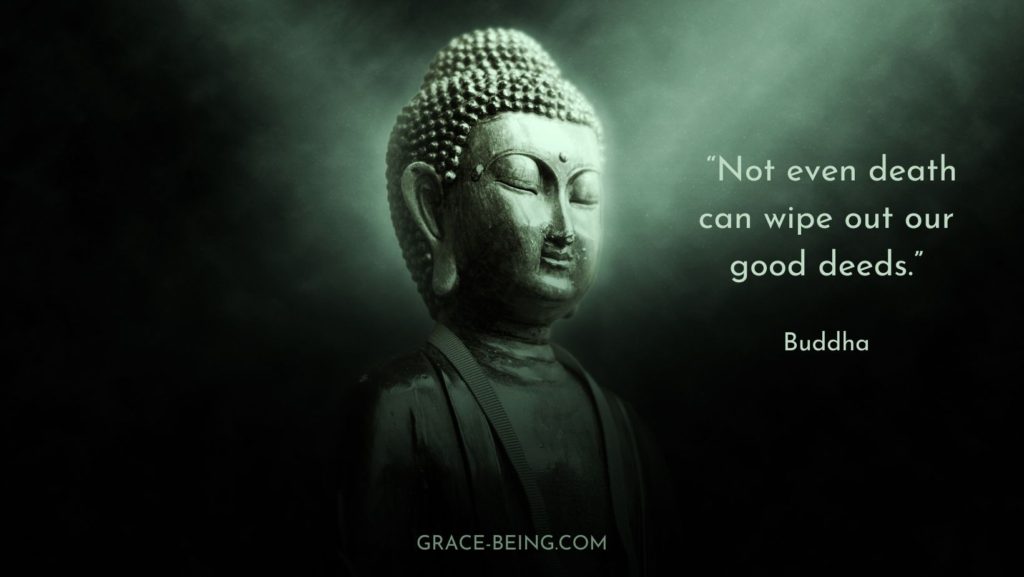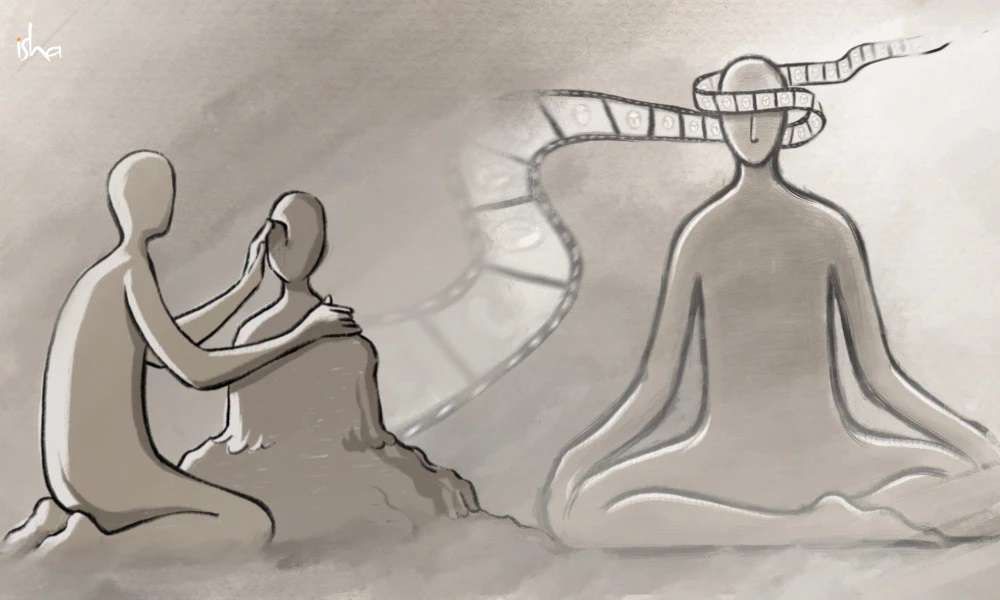In a world often oversimplified by pop culture and hasty judgments, The Real Meaning of Karma offers a profound insight into the interconnectedness of actions and consequences. Far from being a mere cosmic scoreboard of good and bad deeds, karma represents a dynamic principle rooted in ancient wisdom that encourages self-awareness and ethical living. This article uncovers the authentic essence of karma, dispelling myths and exploring its practical applications to foster a deeper understanding of how it can guide personal growth and societal harmony.
Historical Roots of Karma

Karma’s journey through history reveals a concept far more nuanced than modern interpretations often suggest. Originating in ancient India, karma has evolved from a philosophical idea into a universal principle influencing various cultures and religions. By examining its roots, we can better appreciate The Real Meaning of Karma as a tool for ethical reflection rather than a punitive force. This section traces karma’s development, highlighting how it has been shaped by spiritual traditions and philosophical debates over centuries.
Karma in Ancient Indian Philosophy
Delving into the earliest references, karma first appears in the Vedic texts of ancient India, around 1500 BCE. These sacred hymns and rituals laid the groundwork for understanding human actions as part of a larger cosmic order. In the Rigveda, for instance, karma is subtly implied through the idea of rita, which represents cosmic harmony maintained by righteous deeds. This wasn’t about individual reward or punishment but about maintaining balance in the universe. As societies evolved, the concept deepened in the Upanishads, written between 800 and 200 BCE. Here, karma is explicitly linked to the cycle of samsara, the continuous rebirth of the soul. The Upanishads teach that actions (karma) create impressions on the soul, influencing future lives. This perspective shifts karma from mere ritualistic practice to a moral imperative, emphasizing that every action has consequences that extend beyond one’s lifetime.
Moreover, in the Bhagavad Gita, a key text in Hinduism dated around 200 BCE, karma is elaborated through the dialogue between Prince Arjuna and the god Krishna. Krishna advises Arjuna on the path of karma yoga, which is the yoga of selfless action. This means performing duties without attachment to results, a concept that underscores The Real Meaning of Karma as a path to spiritual liberation rather than a system of cosmic justice. In this context, karma is not punitive but educational, teaching individuals to act with detachment and mindfulness. By the time of the Puranas, karma had become intertwined with mythology, with stories illustrating how deeds in one life affect rebirth. This evolution shows karma as a dynamic force, adapting to cultural needs while retaining its core essence of cause and effect.
Finally, it’s important to note how karma in ancient Indian philosophy influenced social structures. For example, the caste system was sometimes justified through karmic explanations, suggesting that one’s social position resulted from past-life actions. While this has been criticized, it highlights how karma was used to enforce moral and social order. Understanding this historical context helps demystify karma, revealing it as a philosophical tool for encouraging ethical behavior rather than a rigid doctrine.
Spread to Other Eastern Traditions
As karma migrated from India to other parts of Asia, it underwent adaptations that enriched its meaning. In Buddhism, founded by Siddhartha Gautama in the 5th century BCE, karma became central to the Four Noble Truths and the Eightfold Path. Buddha redefined karma by emphasizing intentional actions and their mental states, moving away from the Vedic focus on ritual. For Buddhists, karma is not predetermined by fate but is malleable through mindfulness and ethical conduct. This shift highlights The Real Meaning of Karma as a principle of personal agency, where individuals can break the cycle of suffering by cultivating positive intentions.
In Jainism, another ancient Indian religion, karma is viewed through a more scientific lens. Jains believe that karma is a subtle matter that clings to the soul, weighing it down and preventing liberation. Through practices like austerity and non-violence, Jains aim to shed karmic particles, achieving a state of purity. This perspective adds a layer of metaphysical detail, portraying karma as a physical substance rather than an abstract concept. As these ideas spread to China and Japan via the Silk Road, they influenced Confucianism and Shintoism, where similar notions of reciprocal actions exist. For instance, in Confucianism, the concept of ren (benevolence) echoes karmic principles by stressing harmonious relationships built on ethical behavior.
Furthermore, in Tibetan Buddhism, karma is explored through complex tantric practices, where visualizations and meditations are used to purify past actions. This evolution demonstrates how karma adapted to different cultural contexts, always retaining its core idea of interconnectedness. By understanding this spread, we see that The Real Meaning of Karma is not static but a living philosophy that resonates across borders, promoting universal ethics.
Impact on Western Interpretations
While karma originated in the East, its introduction to the West during the colonial era and the New Age movement transformed it significantly. Early Western scholars like Max Müller translated Sanskrit texts, introducing karma to European audiences in the 19th century. However, this often came with misinterpretations, such as viewing karma solely as a law of retribution, similar to Christian ideas of sin and judgment. In the 20th century, with the rise of counterculture and interest in Eastern spirituality, figures like the Beatles and the Hare Krishna movement popularized karma, but in a simplified form.
This Western lens sometimes reduces karma to a pop psychology tool, where good vibes attract good fortune, overlooking its deeper philosophical roots. Modern self-help books and media often depict karma as an instant cosmic response, which dilutes The Real Meaning of Karma by ignoring the long-term, cumulative nature of actions. Yet, contemporary thinkers like Deepak Chopra have attempted to bridge Eastern and Western views, integrating karma with quantum physics to suggest that thoughts and actions create vibrational energies that influence reality.
In academic circles, scholars now approach karma with a critical eye, examining its role in globalization and cultural exchange. This has led to a more nuanced understanding, where karma is seen as a metaphor for personal responsibility in an interconnected world. By tracing this impact, we appreciate how The Real Meaning of Karma continues to evolve, offering timeless wisdom that transcends cultural boundaries.
Common Misconceptions About Karma


Despite its ancient origins, karma is frequently misunderstood in contemporary society, often reduced to simplistic notions of “what goes around comes around.” These misconceptions can obscure The Real Meaning of Karma, turning it into a tool for blame or wishful thinking rather than a guide for ethical living. By addressing these errors, we can reclaim karma’s true intent, which is to foster awareness and compassion. This section explores how pop culture and incomplete knowledge have distorted karma, and provides clarity through real-world examples and corrections.
Karma as Instant Retribution
One prevalent myth is that karma operates like a vending machine,
Common Misconceptions About Karma


Despite its ancient origins, karma is frequently misunderstood in contemporary society, often reduced to simplistic notions of “what goes around comes around.” These misconceptions can obscure The Real Meaning of Karma, turning it into a tool for blame or wishful thinking rather than a guide for ethical living. By addressing these errors, we can reclaim karma’s true intent, which is to foster awareness and compassion. This section explores how pop culture and incomplete knowledge have distorted karma and provides clarity through real-world examples and corrections.
Karma as Instant Retribution
One prevalent myth is that karma operates like a vending machine, dispensing immediate rewards or punishments based on one’s actions. This notion suggests that if someone commits a good deed, they will be rewarded right away, while a negative action will lead to swift consequences. This oversimplification can lead individuals to become frustrated when bad things happen to good people, or vice versa.
Karma does not function on a timeline dictated by our expectations. Instead, it operates over a more complex spectrum. In the teachings of ancient texts like the Bhagavad Gita, karma is viewed as a long-term process where intentions and actions accumulate over time. Sometimes individuals must navigate their karmic consequences over several lifetimes. The idea of instant retribution diminishes the depth of karma, reducing it to mere transactional exchanges rather than understanding it as a broader cosmic tapestry of cause and effect.
This misconception can also lead to a dangerous mindset where people might justify cruelty or suffering toward others as a form of “karmic justice.” By assuming that everyone gets what they deserve instantly, we risk losing our empathy and compassion for those who may be struggling. In reality, karma invites us to act selflessly and kindly, regardless of the immediate outcomes.
Karma and Blame Culture
Another significant misunderstanding surrounding karma is its usage as a tool for blame. People often say that someone who has suffered misfortune must have done something wrong to deserve it. This kind of thinking fosters a toxic environment where compassion is sacrificed for judgment, and it can create undue guilt or shame for those facing hardships.
Karma should not be leveraged as a means to point fingers at others. This viewpoint undermines the complexities of life, where misfortunes can occur due to various factors—some beyond an individual’s control. For instance, a person diagnosed with a chronic illness may be unjustly viewed as having “bad karma,” disregarding the genetic, environmental, or circumstantial elements that contribute to their condition.
In many spiritual traditions, including Buddhism, there is an understanding that suffering is part of the human experience. Rather than assigning blame, these philosophies encourage compassion and support. They look at karma as an intricate interplay of actions influenced by countless variables, reminding us that it is essential to offer kindness instead of condemnation.
Karma as Wishful Thinking
In popular culture, karma is often employed as a concept of wishful thinking: the belief that if one maintains a positive mindset and performs good deeds, they will inevitably attract success and happiness. While maintaining a positive attitude is beneficial, equating positivity with guaranteed rewards can lead to disillusionment.
Incorporating karma into the realm of positive psychology and law of attraction simplifies its essence. True karma calls for engagement in mindful actions, focusing on the intention behind our choices rather than solely on the outcomes. It emphasizes that creating positive energy through compassionate acts enriches our lives; however, it doesn’t promise specific results.
Furthermore, this interpretation can create unrealistic expectations about life’s challenges. When individuals focus too heavily on attracting good fortune, they may neglect necessary work or action required to achieve their goals. It is vital to recognize that while good deeds may invite positive responses from the universe, they are not a replacement for personal effort and accountability.
Putting too much emphasis on wishful thinking can lead to complacency, misunderstanding that karma is relational and requires active participation in life. Thus, individuals may benefit from appreciating the multifaceted nature of karma while remaining realistic about the efforts needed to enact change both within themselves and in the world around them.
Conclusion

In summary, the concept of karma extends far beyond the simplistic adage of “what goes around comes around.” This profound philosophy encompasses a range of interpretations across various cultures and traditions, each contributing to a deeper understanding of moral responsibility, interconnectedness, and personal agency. By addressing common misconceptions about karma, including its perceived nature as instant retribution, a tool for blame, and a mechanism for wishful thinking, we can reclaim its authentic essence.
Ultimately, The Real Meaning of Karma serves not as a rigid doctrine but as a dynamic framework for ethical living. It encourages individuals to perform actions with integrity, cultivate mindfulness, and embrace the complexity of existence. By fostering a compassionate approach to ourselves and others, we can engage deeply with the transformative power of karma, allowing it to guide us toward greater awareness and liberation.

GIPHY App Key not set. Please check settings